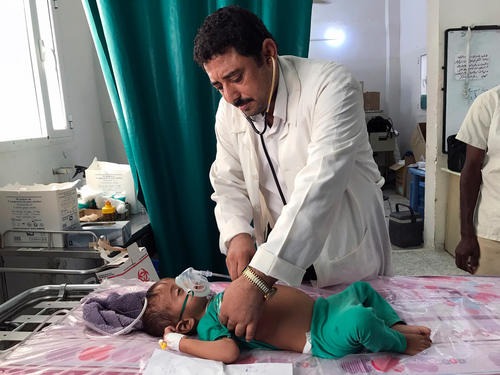For the past 12 days, MSF has not received authorisation from the Saudi-led coalition to fly from Djibouti to Sana’a in Yemen. This has significantly hindered the organisation’s ability to provide life-saving medical and humanitarian assistance to a population already in dire need.
On 15 November, MSF’s usual scheduled weekly flight to Aden was authorised, and MSF’s plane was able to make one return flight between Djibouti and Aden. The authorisation was a welcome step, and will help us to continue providing assistance in our projects in Aden, Taiz and nearby governorates.
However, Aden airport is far from sufficient for MSF to be able to deliver timely and urgent medical humanitarian aid across Yemen. Aden is also highly insecure and geographically far from some of the areas in most need of humanitarian assistance. The overall impact of the continuing blockade of other ports and airports increases the strain on the population by the day, at a time when the majority of Yemenis are already struggling with massive increases in food, water and fuel costs, as well as access to medical care.
MSF continues to request authorisation for flights to Sana’a, which together with other areas of the north are among the places most affected by the blockade. Access for humanitarian flights into Yemen through Sana’a airport is essential for MSF’s medical and humanitarian operations, as well as for other organisations working to support the Yemeni population.



